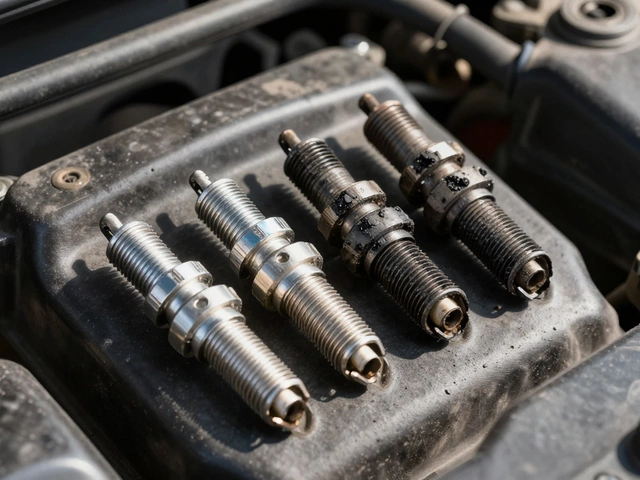Ever watch a car roar down the street and wonder, “Wow, is that thing about to take off?” Chances are, that wild sound comes from a muffler delete. Some folks chase that raspy, aggressive note, but there’s always chatter: could this simple mod ruin your engine? Rowdy exhausts sound cool at a Friday night meet, but nobody wants to toast their daily driver just for a little extra bark. Here’s what’s really going on when you yank off a muffler—and why your engine might have more to say about it than you think.
What Is a Muffler Delete, and Why Do People Do It?
Let’s break it down—your muffler is there to hush the exhaust before it escapes out back. It’s a series of chambers, baffles, and sometimes fiberglass packing. The main job: tone down the noise, control drone, and keep your car legal on the street. When you do a muffler delete, you basically chop off the muffler and replace it with straight pipe—no sound design, just pure, unfiltered exhaust noise. Tons of enthusiasts are all about this mod for one big reason: sound. They want their cars to be heard three blocks away. Some also believe it gives more horsepower, since those baffles and chambers restrict exhaust flow.
But let’s toss the myths to the side. A plain muffler delete doesn’t magically free up 20 horsepower. Most modern engines are tuned well enough that the performance bump is barely noticeable—maybe two or three horses at best, if you’re lucky. Companies have dyno tested this, and unless the muffler was extremely restrictive, gains are usually in the margin of error. So, for most people, it’s about having a car that sounds meaner. Some like the unique tone it gives—my son Rowan swears he can pick out a deleted Civic from a mile away. Still, there’s more at play than just sound and a phantom performance boost.
Potential Effects on Engine Health: Fact vs. Fiction
So, will a muffler delete hurt your engine? Here’s the honest answer: on most modern cars, a muffler delete by itself usually won’t cause direct engine damage. That’s because mufflers are installed downstream of all the critical emissions equipment and sensors. The muffler doesn’t play a major role in backpressure management—its job is mostly about taming sound. Backpressure actually comes from other components up the line, like the catalytic converter or resonators. So, simply chopping off the muffler won’t starve an engine or mess up its valves.
But beyond the engine itself, there’s a ripple effect to think about. Some cars are fussier than others. Many newer vehicles use complex sensors (like O2 sensors) to monitor emissions and keep the engine running at its best. If the muffler delete somehow messes with your exhaust flow so much that the car's sensors start seeing weird readings, you could run into problems—check engine lights, irregular idle, or failed inspections. This is super rare, but it can pop up on the latest turbocharged engines where even small changes throw off the computer’s expectations.
If your system uses “active exhaust” valves controlled by the vehicle, a muffler delete can trip error codes or put the car into limp mode. Also, sometimes removing the muffler exposes weak points in old pipes. My daughter Callista learned this the hard way after snake-eyeing her way through a swap meet and picking up some eBay-grade straight-pipe—the rust and poor welding led to exhaust leaks by the weekend, sending fumes into the cabin.
The real killer is improper installation. Some folks just hack off the muffler and leave jagged edges, causing leaks or poor connections. Those leaks can let in water, which leads to rust, or even damage sensitive exhaust sensors upstream if not careful. If you do consider a muffler delete, it pays to have a pro do the work, weld everything tight, and check for leaks after.

Legal and Practical Consequences of Muffler Deletes
Here’s where it gets dicey—muffler deletes are not legal everywhere. In the US, almost every state has some law about vehicle noise. Federal regulations require cars to meet specific sound and emissions standards straight from the factory. Removing the muffler almost always violates these. Your local cop isn’t likely to pop open a code book, but if your exhaust is clearly too loud, you’re at the mercy of their mood. One guy in my neighborhood has gotten three tickets in two years—each time for “excessive noise.”
It doesn't end there—muffler deletes can fail your annual inspection. Some states check for missing emissions components, and if the muffler is required, your car is going nowhere. Even if you skirt the inspection, driving around with a deleted muffler can quickly wear on you and your family. If you’ve got little kids like mine, that fun growl on startup is less exciting after a two-hour drive. Muffler deletes can cause drone—a constant, low-frequency vibration—especially at highway speeds. Some people find it unbearable. On longer trips, you might be reaching for earplugs. Passengers might complain about headaches, especially in smaller cars where sound bounces around.
Insurance companies sometimes take issue with exhaust system mods, too. If you get in an accident and they discover your car has illegal modifications, claims can get messy. In one California court case, a claim was reduced after an adjuster argued that a “deceptively modified” exhaust system played a part in an accident. You might think you’re just making a personal change, but there can be hidden costs down the road.
Smart Alternatives and Tips for Safer, Legal Sound
If you’re itching for more noise without the drama, there are other ways. High-performance mufflers, also called “straight-through” or “glasspack” mufflers, give you more sound but retain some of the sound-dampening needed to keep things sane. Brands like Flowmaster, Borla, and Magnaflow design mufflers that boost the volume with a tuned, muscular tone—way less likely to cause insane drone or warrant visits. Some aftermarket exhaust kits are even “50-state legal,” stamped with approvals so you won’t run into trouble during inspections.
Resonator deletes are another popular mod. They take out a smaller, secondary component further up the exhaust. This gives a little more sound without going full rock concert. Just remember, every car reacts differently. A resonator delete on a V8 Mustang has a totally different effect than on a turbo four-cylinder hatchback. Always watch vids or listen in person before spending money. Muffler “bypass valves” are a newer tech—at the tap of a button, you can open or close the loud part of the exhaust, keeping the growl for fun while staying quiet on the school run.
Before you pick up a Sawzall, here are some useful tips:
- Check your local noise and emissions laws before making permanent mods. Some towns even have decibel meters at the inspection lines.
- If going for a muffler delete, use quality parts. Cheap steel pipes rust fast, especially in areas with salted roads.
- Have a pro weld the joints—exhaust leaks are a pain to hunt down.
- Listen for drone on the highway before deciding. Some systems sound awesome at idle but will have you regretting it at 70 mph.
- Keep your stock parts. If you ever want to sell the car or need to pass inspection, having the original muffler in the garage can save you hundreds in repairs.
The bottom line? A muffler delete won’t usually destroy your engine, but it’s not free of headaches. The right move comes down to how much noise you actually want to live with, whether it’s worth some extra legal hassle, and how much patience you have for explaining to your neighbors why the whole street shakes when you leave for work. If you’re careful and plan well, you can get the sound you want safely—and stay friends with everyone else on your block.







Write a comment